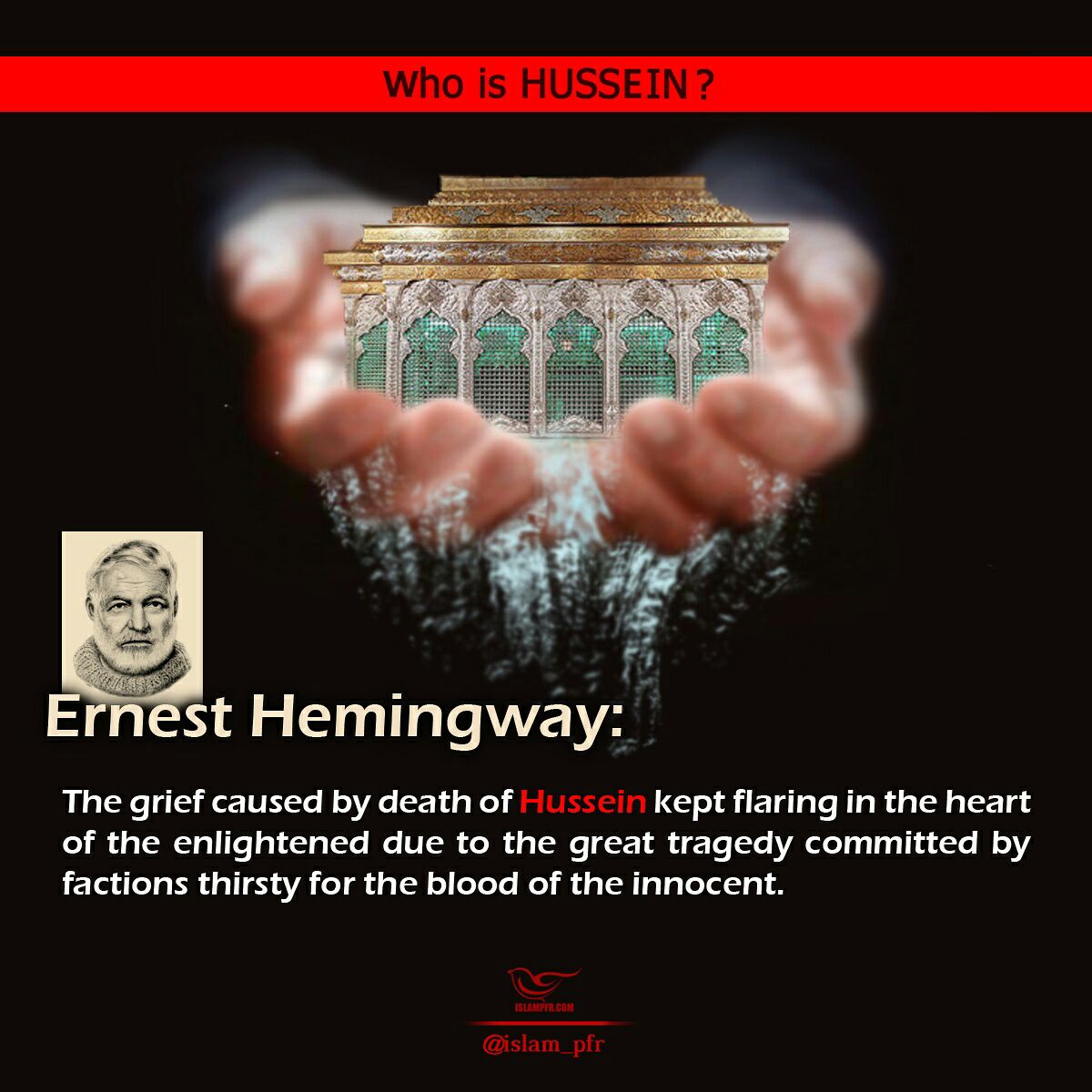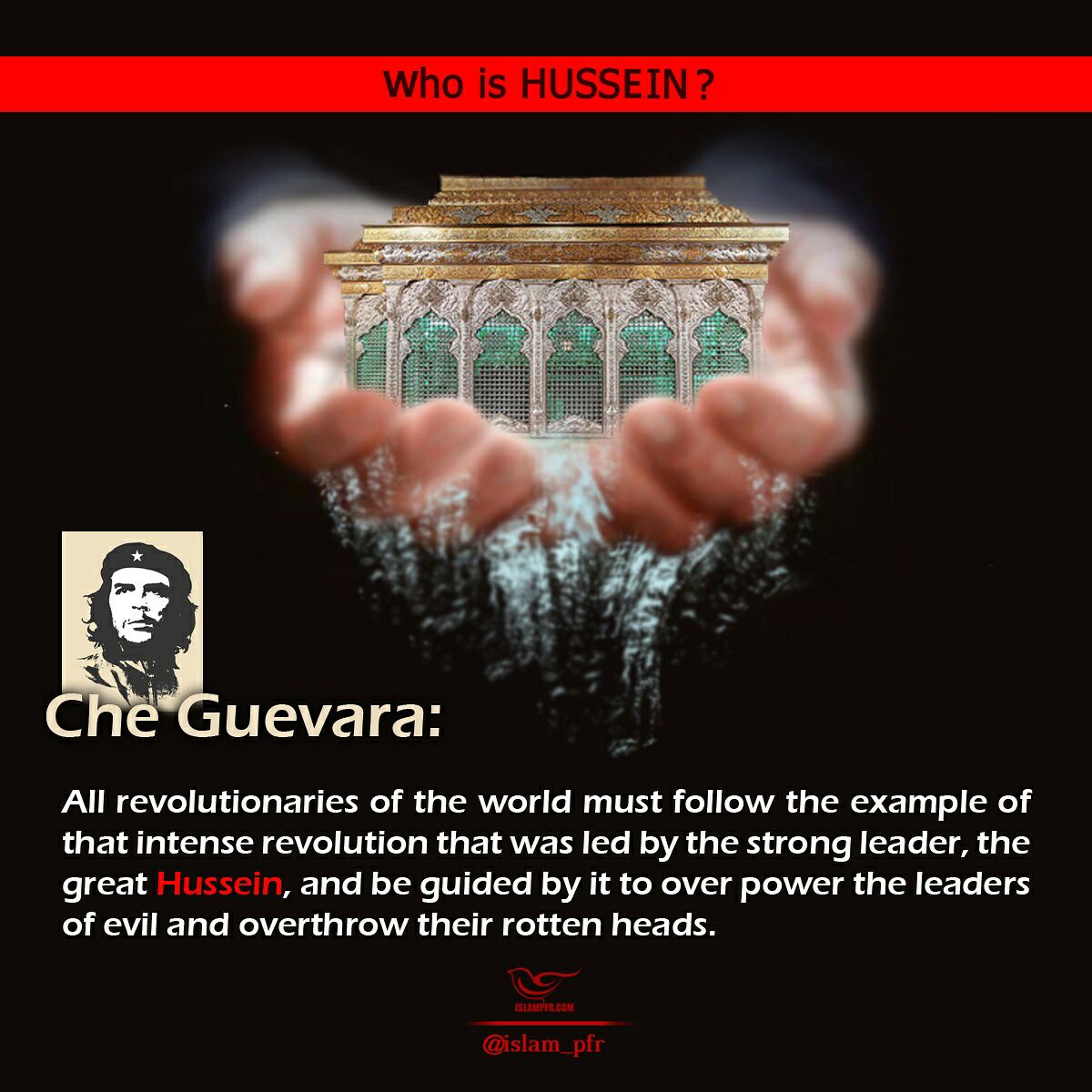(The character and virtues of Hazrat Ali Akbar (PBUH
Hazrat Ali Akbar (PBUH) was born on Sha’ban 11th, 33 AH or 35 AH or 41 AH and was martyred on Muharram 10th, 61 AH in the Battle of Karbala along with Imam Hussain
:Tabari in his history book introduces Hazrat Ali Akbar (PBUH) as follows
The first martyr in Karbala from generation of Abu Talib (PBUH) is Hazrat Ali Akbar (PBUH). His father is Imam Hussein ibn Ali, his mother is Lady Layla the daughter of Abi Murrah bin ‘Urwah bin Mas‘ud al-Thaqafi. He went to the
:battlefield declaiming
I am Ali the son of Hussein ibn Ali، I swear to the Lord of Kaaba, we are the closest family members of Muhammad (PBUH), and I swear to Allah that the son of a strumpet woman (Muawiyah) won’t govern us
(History of the Prophets and Kings, vol.3. The Publisher: Dar-ol-Kotob Elmiyah)
: (The most similar person to Prophet Muhammad (PBUH
One of Hazrat Ali Akbar’s (PBUH) eminent virtues is that Imam Hussein (PBUH) described him as follows
Ali Akbar is the most similar person to the first being of the world, the Great Prophet (PBUH) and this virtue illuminates his eminent dignity to everyone
: Abu al-Faraj al-Isfahani, a Sunni scholar, narrates in Maqatil al-Talibiyyin that
When Ali ibn Hussein went to fight with enemies, Imam Hussein wept and said: O God, be witness to this event (these people), because a young man went for fighting, who is the most similar person to your prophet
Hazrat Ali Akbar attacked (several times) that group and came back to his honorable father and said: “Dear father! I’m thirsty!” Imam Hussein (PBUH) replied
Tolerate my dear, today will not end, until you are satiated with your forefather- Prophet Muhammad’s (PBUH) bowl (he will give you water
Hazrat Ali Akbar fought till the arrows torn his throat
While he was rolling in his blood, he called out: Dear father! Peace be upon you, this is my forefather, God’s prophet, who sends his regards to you and says: Hurry up and come to us, then got martyred
(Maqatil al-Talibiyyin,vol.1)
Abu Mikhnaf also narrates another phrase in this regard
Hazrat Ali Akbar (PBUH) had the most beautiful face and the best character. [when he was going to the battle field] Imam Hussein’s (PBUH) eyes became full of tears and said: “Oh Allah! Attest that a young man went to the battle field who is the most similar person to your prophet regarding his appearance, moral characteristics and speech. Whenever we desired to visit your prophet we looked at Ali Akbar
Maqtal al-Husayn. The publisher: Al-Elmiyah Publishing. This has been narrated in some other books as well
: Similarity to the Islam’s Prophet in every aspect
Hazrat Ali Akbar is, facially, the most similar person to the Prophet (PBUH). There are some narrations about the beauty of the Prophet’s (PBUH) face. Ibn Hajar Asqalani writes in Fath al-Bari
Abu Hurairah said: I have never seen anyone better and more beautiful than Allah’s Prophet (PBUH), it seems that the Sun can be seen in his holy face
Abu Ishaq says: I asked a woman who had already seen the prophet in hajj to describe his face. She said: The prophet’s face is like the full moon and I’ve never seen anyone like him before and after that and Rabi, Mas’ud’s daughter, narrates: If someone sees the Prophet (PBUH), in fact he will see a glittery Sun
(Fatḥ al-Bārī fī Sharḥ Ṣaḥīḥ al-Bukhārī, vol.6. The publisher: Dar-al Ma’refah)
And Ibn Kathir, on a comparison between the beauty of Joseph and the Holy Prophet (PBUH), writes
In comparison with the beauty of Joseph (PBUH), narratives are mentioned about the beauty, grandeur, profit, guidance and blessing of Prophet Mohammad (PBUH). As there are narratives about the beauty of the Holy Prophet’s (PBUH) appearance, for instance those which are narrated by Rabi, Mas’ud’s daughter
“If someone meets the Prophet (PBUH), in fact he will see a glittery Sun”
(Al-Bidaya wa’l-Nihaya, vol.6. Publisher: Maktib al-Ma’aref.)
This was just a brief description of Prophet Mohammad’s (PBUH) beautiful appearance and as it was mentioned earlier, Hazrat Ali Akbar is the most similar person to the Prophet in appearance, hence the indescribable beauty of Hazrat Ali Akbar (PBUH) is discerned
But the second similarity of Hazrat Ali Akbar to Prophet Muhammad (PBUH) is that he is the most similar person to the Prophet (PBUH) regarding morality, behavior and gesture
: The Almighty God says about the ethics of Prophet (PBUH) in the Holy Quran
( And thou (standest) on an exalted standard of character. (68: 4
: Sunnis scholars write about this verse
This explanation is due to the fact that no one’s attitude is better than the ethics
(of Prophet Muhammad (PBUH
: Allah says in another verse
( We sent thee not, but as a Mercy for all creatures. (21:107
Or in another verse, the Prophet is introduced as a good role model: “Ye have indeed in the Messenger of Allah a beautiful pattern (of conduct)” (33:21
Yet we know there are many aspects of good morals. The person who has the best ethics, in a way that he is a blessing and a model for the whole world, is at the highest level in all moral attributes. However the most similar servant of God to Prophet Muhammad (PBUH), is Hazrat Ali Akbar. This means that like his noble ancestor, he has the highest position of virtue and is the source of blessing and model for people of the world
The third similarity of Hazrat Ali Akbar to Prophet Muhammad (PBUH) is in terms of speech and utterance.The most important feature of the Prophet (PBUH) is that he never spoke based on personal desires, and Almighty Allah praises His Prophet as follows in the Quran:
(“Nor does he say (aught) of (his own) Desire” (53:3
Accordingly, Hazrat Ali Akbar (PBUH) is the most similar person to Prophet Muhammad (PBUH) in terms of speech and utterance
This remark of Imam Hussein (PBUH) reveals the dignity of Hazrat Ali Akbar (PBUH). Imam Hussein (PBUH) said: If we were eager to visit Prophet Muhammad, we used to look at Ali Akbar (PBUH), because he was the most similar person to Prophet Muhammad (PBUH
The status of Hazrat Ali Akbar (PBUH) was so high that even the enemies of Ahl al-Bayt (Peace Be upon Them) confessed that.
: (Strong love of Imam Hussein (PBUH) to Hazrat Ali Akbar (PBUH
According to the resources of Shias and Sunnis, when Imam Hussein (PBUH) became aware of his son’s martyrdom, he came out of the tent and went bedside his son, and as he wept and shed tears, said: May, God kill your murderers, how these shameless people rebel against God, and how they disrespect the Prophet of God., and as tears shed from his eyes said: After your martyrdom, pity be on the world
(Al-Bidaya wa’l-Nihaya, vol.8.)
By this remark Imam Hussein (PBUH) expresses his extreme interest and love to his son. The martyrdom of Hazrat Ali Akbar (PBUH) and his death is so hard for Imam Hussein that he considers living in this world without Ali Akbar (PBUH), worthless. And another point is that the respect and sanctity of Hazrat Ali Akbar (PBUH) is the same as the respect for Prophet Muhammad (PBUH) and by being disrespectful to Ali Akbar (PBUH) in fact Prophet Muhammad (PBUH) was defiled
Hazrat Ali Akbar (PBUH) has many virtues that certainly it does not fit in this
brief article and we explained only a part of his dignities
Islampfr.com



